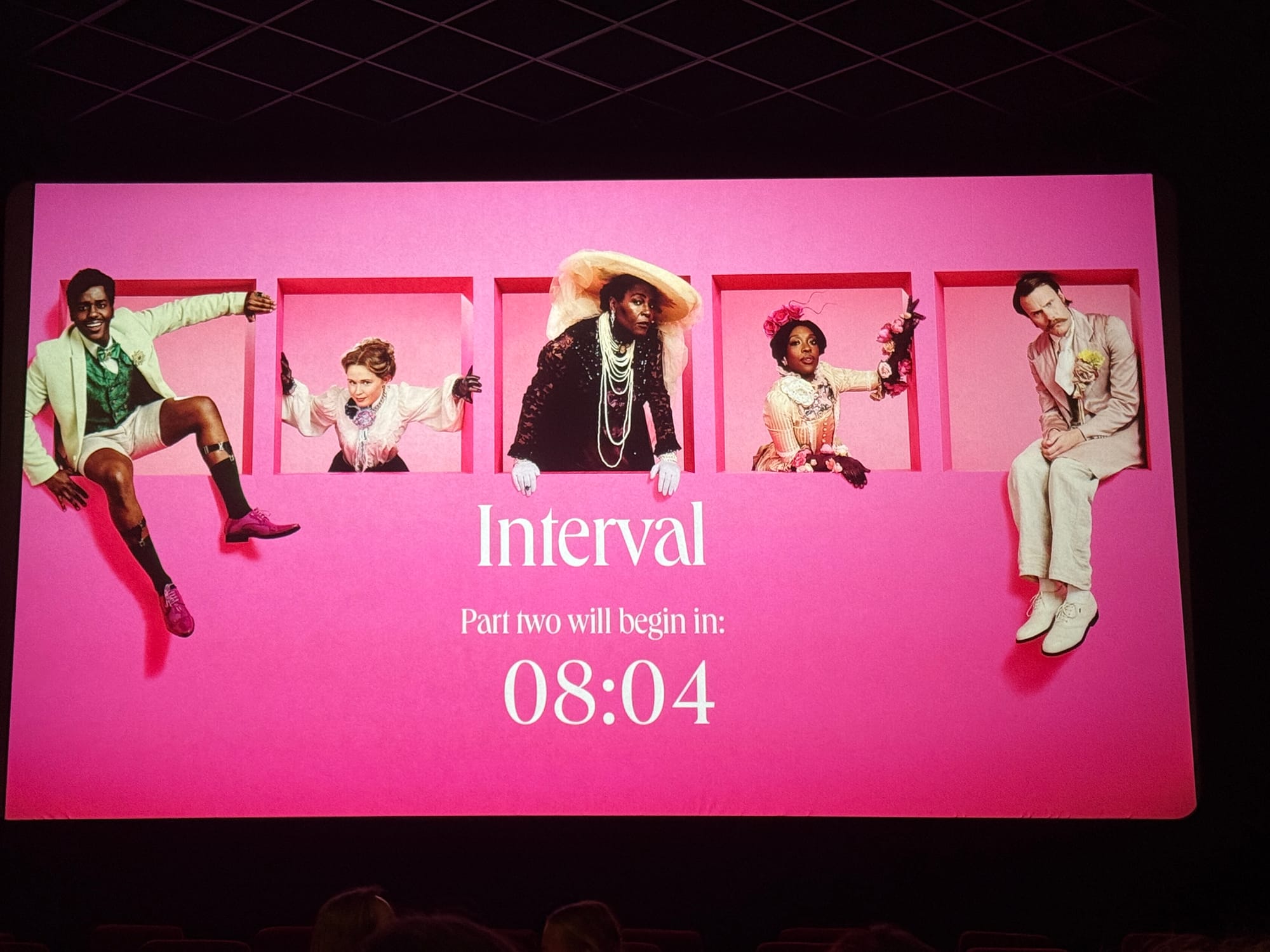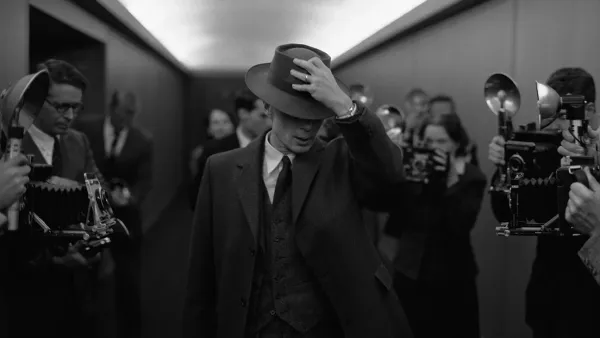The Importance of Being Ncuti
I mean...Earnest!

I have a very specific and personal connection to this play — my mother once played Lady Bunbury in an amateur dramatics production, much in the same fashion as Sharon D. Clarke did in this NT production — and I was on music and sound tech duties for the production over multiple shows. I have used the scene in the garden with Cecily and Miss Prism as audition fodder over and over and over. I am also queer and a big fan of Oscar Wilde in general — so this interpretation meant a lot to me.
I twisted my ankle the week before going to see it live and couldn’t make it — so here we are, at the NT Live screening at the Picturehouse Central Cinema, enjoying the production in a much more comprehensive way.

It is simply brilliant — the way they’ve bent the plot to work with an unabashedly queer interpretation (Algy/Earnest queening out with Cecily was a brilliant touch) honors Oscar Wilde in a truly unique way.
The fact that Jack/Earnest is running after Algy’s sister felt like an odd rhyme with James Baldwin’s Another Country, but in the campiest upsell one can fashion.
Everything is exaggerated and hilarious — if a little slow on the mark. Wilde benefits from a snappy speed and force, which can be a lot to get your mouth around (😉), but it is absolutely required, and a few of the actors, Ncuti included, are a little slower in their interpretation, which is more than made up for by the extravagance and purpose of their interpretation of the text.
It’s the Interval as I write this — let’s see how the rest goes.

OK, this was simply stunning.
You can tell as the story goes on that there are two ‘straight’ couples and, underneath, two gay couples, which I loved. Somewhere after the intermission, ‘underneath’ became blatant, and I won’t spoil how, but it was glorious, if a little clumsy. The text is quite overt about its perceived heterosexuality, and to have the characters playing one script and actioning another, in the case of Gwen and Jack/Earnest, felt a little undercooked in its logic. I think a bit more cheeky, Shakespeare-esque interpretation of innuendo was needed.
I was reminded why I love this play, and why I love theatre especially, when the final sequence of unravellings occurred, and the characters who weren’t speaking flitted about the stage with equal inner worlds, distracted equally as much by all sorts of other sensory inputs (😉), and at that point, I had no notes on pacing.

The entire cast was absolutely fabulous. Ncuti was, of course, a star, as always, but I feel I discovered two icons I will be obsessed with for a while in this production — Hugh Skinner and Ronkẹ Adékọluẹ́jọ́. Both together and apart, they stole every line and charged the train of the entire play forward with aplomb.
The play ends with a beautiful nod to Black Joy and how it lends itself quite brilliantly to Queer Black Joy. Again, no spoilers!
Max Webster, you will always be famous.
How did you feel about the pacing, and the queer innuendo?
Lesbians? 🎉 You love to see it!
Speak, Valentinas!




